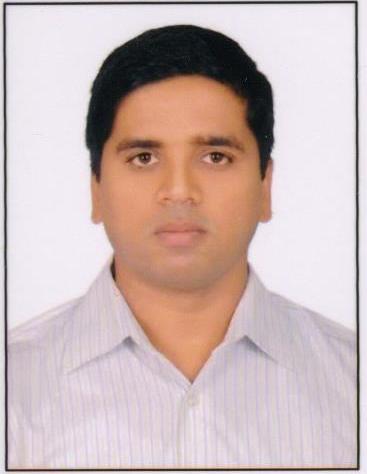per person /
Free
Fermentation Biotechnology
Course Attendees
Still no participant
Course Reviews
Still no reviews
Course Name : Fermentation Biotechnology
Code(Credit) : CUTM 1118(3-1-1)
Course Objectives
• To study the design and construction of fermentor and parameters to be
monitored and controlled in fermentation process.
• To study the principle of sterilization necessary for fermentation.
• To study the cell growth and product formation.
• To evaluate the kinetics and mechanism of microbial growth.
Learning Outcomes
This subject puts emphasis on the basic engineering principles of Fermentation Technology. It also highlights the application of fermentation in biotechnological industry.
Course Syllabus
Module I: Title (4 hrs) Introduction to fermentation
Introduction to fermentation; History and development of fermentation industry; General requirements of fermentation processes; Isolation, preservation and improvement of industrially important micro- organisms.
Practice: Fermentor and its use
Module II: Title (4 hrs) Preparation of microorganisms (microbial cells) for fermentation.
Development of inoculate for industrial fermentations; Kinetics of microbial growth and death; Air and media sterilization
Practice: Preparation of fermented product
Module III: Title (4 hrs) Basic design of fermentor
Fermentor; Basic design and construction of fermentor and ancillaries; Different types of fermentations
Practice:Batch culture of microbes
Module IV: Title (4 hrs) Types of fermentation process
An overview of aerobic and anaerobic fermentation processes and their application in the biotechnology industry solid-substrate fermentation and its applications.
Practice:Continuous culture
Module V: Title (4 hrs) Measurement of Parameters
Measurement and control of bioprocess parameters Analysis of batch, fed-batch and continuous bioreactions; Bioreactor configuration - batch, continuous stirred-tank, tubular, plug flow, packed bed, air lift, fluidized bed
Module VI: Title (5 hrs) Bioreactors and types
General considerations in the design of a bioreactor; Specialized bioreactors; Pulsed, fluidize photobioreactors. Biological system parameters; Processes involving microbial flocs; Bioreactors containing microbial films; Basic concept of scale-up of bioreactors.
Module VII: Title (5 hrs) Microbial Bioreactors
Stability of microbial reactors; Mixed microbial populations; Bioreactor design and optimum operations – Mixing characteristics; Residence time distribution, Concentration distribution and Temperature distribution; Biological system parameters.
Project: Use and identification of microbes involved in preparation of fermented food.
Text Books:
1. Murray Moo -Young , Comprehensive Biotechnology, Vol. 1 & III-latest ed.
2. Microbes & Fermentation, A. Lel and Kotlers Richard J. Mickey, Oriffin Publication
3. Industrial Fermentations- Leland, N. Y. Chemical Publishers.
4. Prescott and Dunn’s- Industrial Microbiology, 4 th, ed.
Course outline Prepared by; Dr. Ranjan Kumar Sahoo Date:08-06-20
Source of reference; NSQF
Session Plan
Session 1
Session 3
General requirements of fermentation processes
Session 5
Isolation, preservation and improvement of industrially important micro- organisms.
Session 6
Industrial Fermentation
Session 7
Project: Use and identification of microbes involved in preparation of fermented food.
Step 1: Selection of fermented bacteria available in local foods.
Session 8
Development of inoculate for industrial fermentations
Session 12
Project: Use and identification of microbes involved in preparation of fermented food.
Step 2: Phenotypic study of isolated bacteria.
Session 13
Construction of fermentor and ancillaries
Session 14
Different types of fermentations, Types of Industrial fermentation
Session 15
An overview of aerobic and anaerobic fermentation processes
Session 17
Fermentation processes and their application in the biotechnology
Session 18
Industry solid-substrate fermentation and its applications.
Session 20
Analysis of batch, fed-batch and continuous bioreactions
Session 21
Project: Use and identification of microbes involved in preparation of fermented food.
Step 3: Biochemical characteristics of bacteria.
Session 22
Bioreactor configuration - batch fermentor,
Session 23
Continuous stirred-tank, tubular, plug flow, packed bed, air lift, fluidized bed bioreactors
Session 24
General considerations in the design of a bioreactor
Session 25
Specialized bioreactors; Pulsed, fluidize photobioreactors
Session 27
Biological system parameters
Session 28
Processes involving microbial flocs
Session 29
Bioreactors containing microbial films
Session 30
Basic concept of scale-up of bioreactors
Session 31
Project: Use and identification of microbes involved in preparation of fermented food.
Step 4: Preservation and storage of pure culture.
Session 32
Stability of microbial reactors
Session 33
Mixed microbial populations for bioreactor
Session 34
Bioreactor design and optimum operations – Mixing characteristics
Session 36
Residence time distribution, Concentration distribution and Temperature distribution
Session 37
Biological system parameters for bioreactor
Session 38
Project: Use and identification of microbes involved in preparation of fermented food.
Step 5: Staining and antibiotic sensitivity test of pure culture bacteria.
Session 39
Application of fermentor in Pharma, food and Beverage Industry
Session 40
Drug testing, carcinogenicity test using bacteria (Ame's Test)
Session 41
Project: Use and identification of microbes involved in preparation of fermented food.
Review and submission of report
Case Studies
Case Studies
Our Main Teachers



Recent Comments